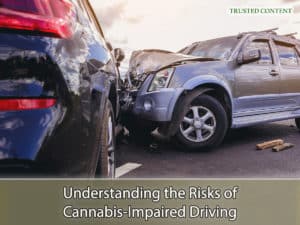In California, the intersection of road safety and cannabis use is a critical issue following the legalization of recreational cannabis. This article aims to provide an in-depth understanding of the legal landscape surrounding cannabis use for drivers in California, emphasizing the importance of adhering to state laws to ensure safety and compliance.

Detailed Overview of California's Cannabis Laws
Detailed Overview of California's Cannabis Laws
California's Proposition 64, passed in 2016, marked a significant shift in cannabis policy, allowing adults over 21 to use cannabis recreationally. Under this law, individuals can legally possess up to 28.5 grams of cannabis flower and 8 grams of cannabis concentrates. However, the law strictly prohibits public consumption of cannabis, including in vehicles, and mandates that any cannabis transported in a car must be in a sealed container, stored in the trunk. These regulations aim to prevent impaired driving and ensure public safety.
Legal Definition and Consequences of Cannabis-Impaired Driving
In California, driving under the influence of cannabis is a criminal offense under Vehicle Code 23152(f) VC. Unlike alcohol, where impairment is measured by a blood alcohol concentration of 0.08%, cannabis impairment is evaluated through field sobriety tests and observed behaviors. Conviction for a cannabis DUI can result in penalties such as fines, suspension of driving privileges, DUI education programs, and even incarceration, especially in cases involving accidents or repeat offenses.

Understanding the Risks of Cannabis-Impaired Driving
Understanding the Risks of Cannabis-Impaired Driving
Cannabis impairment can significantly affect driving abilities, including delayed reaction times, impaired judgment, and decreased motor coordination. Studies have shown that cannabis use can double the risk of being involved in an accident. Recognizing these risks is crucial for drivers, as driving under the influence of cannabis not only endangers the driver but also other road users.
Assessing Liability in Cannabis-Related Driving Incidents
In the event of an accident involving a cannabis-impaired driver, establishing liability is a complex process. It involves gathering concrete evidence such as traffic surveillance footage, witness testimonies, and results from field sobriety tests. California's legal framework requires a thorough investigation to determine the impaired driver's responsibility in causing the accident.
Legal Options for Victims of Cannabis-Impaired Driving Accidents
Victims of accidents caused by cannabis-impaired drivers have the right to pursue legal action for compensation. This includes filing claims for medical expenses, lost wages, and pain and suffering. California's comparative negligence law allows for compensation even if the victim is partly at fault, with the settlement amount adjusted according to their degree of responsibility.
The Critical Role of Personal Injury Lawyers in Cannabis-Related Cases
Navigating the legalities of a cannabis-related driving accident can be daunting. A skilled personal injury lawyer can provide invaluable assistance in such cases, offering expertise in gathering evidence, negotiating with insurance companies, and representing the victim's interests in court to ensure a fair settlement.
Cannabis Use and Legal Implications for Drivers in Ontario, California
Cannabis Use and Legal Implications for Drivers in Ontario, California
The legal landscape of cannabis use and driving in California is complex and continually evolving. Understanding these laws is essential for all drivers in the state. If you have been impacted by a cannabis-impaired driver, seeking legal assistance is a crucial step. Contact Napolin Accident Injury Lawyer at (909) 962-8415 for comprehensive legal support. Our experienced team is committed to advocating for your rights and guiding you through the legal process to secure the justice and compensation you deserve.

